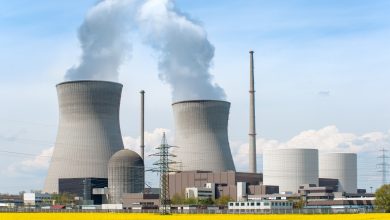Book Review – Adapt or Die
Article published in Economic Affairs, Vol. 25 Issue 2, June 2005.
President Putin of Russia announced that finally he would ratify the Kyoto Protocol after claiming the opposite for months. Irrespective of the reason for this change of mind, Russia’s ratification of the greenhouse gas (GHG) emissions pact may be the clincher for the application of the Protocol. The Kyoto Protocol reflects that climate change and in particular global warming has come to represent a major concern. It is based on the principle that it is crucial for humans to change their energy consumption habits and production of greenhouse gases, which are claimed to be at the source of global warming. But before imposing any growth stemming measures, it is important to ask the right questions: Do human beings have an effect on the climate by releasing CO2 into the atmosphere? Are increased temperatures necessarily dangerous? Can the Kyoto Protocol really have an effect on climate change? How reliable are the models used for predictions? How extensive is our knowledge of climatology?
The book Adapt or Die edited by Kendra Okonsky (Profile Books LDt, 2003) offers an answer to these questions even though this collection of articles mainly focuses on the effects commonly associated with global warming and the solutions proposed in order to counteract these supposedly very harmful consequences. However, it does not completely ignore the debate concerning the reality of global warming, as it is exemplified in Martin Agerup’s article.
In his article, the author challenges the reliability of the models used for predictions. On the uses and abuses of scenarios, “A variety of problems such as sloppiness and poor methodology plague the use of economic scenario methods in many applications.” He adds: “The most serious objections to the Special Report on Emissions Scenarios (SRES), part of the IPCC, result from their use of scenarios as forecast. Since each scenario results in a figure, there is an implicit bias in favour of extreme scenarios, because they extend the temperature range.[[AGERUP, Martin, “Is Kyoto a Good Idea?,” in Adapt or Die edited by Kendra Okonski, Profile Books LTD, London, 2003, p.77-97.]]”
Concerning the effects of global warming, the reader should certainly not miss Pr Reiter’s article about malaria. It shows that “the history of malaria in Europe, especially during periods when the climate was much colder than it is today, contradicts the popular notion that the disease is restricted to the tropics.” (p. 36) According to him, “In much Europe, changes in lifestyles and living conditions were the most important factor in the elimination of malaria.” (p. 34) Other studies show the positive aspects of global warming on tourism or agricultural productivity. Because a warmer and a more humid atmosphere and CO2 enhance plant growth, one may expect that global warming will benefit agricultural output (if, of course, people adapt to changing conditions).
Apart from the direct impact of global warming, Adapt or Die focuses also on the causes, which may explain the occurrence of the Kyoto Protocol and on some huge opportunity costs, which have not been given enough consideration. Mitra shows that the rules aiming at the reduction of the use of some energies will oblige the poor countries to continue to consume traditional and economically inefficient energies. The artificial reduction of energy supply will maintain the developing world in a poverty state. If economic development can cause pollution, it is important to realize that it allows a better satisfaction of the most urgent needs and it creates new resources available to solve environmental problems. This is how some rules hinder the developing world to eliminate poverty while environmental groups speak only about sustainable development. Besides, as Martin Livermore writes, there are good reasons to believe that the implementation of the Kyoto Protocol will limit access to cheap energy and the trend be for energy costs to increase. In the long term, it will have devastating effects on European economic growth.
There are many more problems and challenges mentioned in this book and they would certainly need more detailed analyses. Nevertheless Adapt or Die provides a rather complete picture of the unintended consequences of global warming and of the regulations created in order to respond to it. The book reaches the two key goals of showing that government measures lead us to death rather than adaptation and that free markets are a fundamental condition of economic growth and thus provide solutions to environmental problems.
Cécile Philippe is Director of the Molinari Economic Institute.





